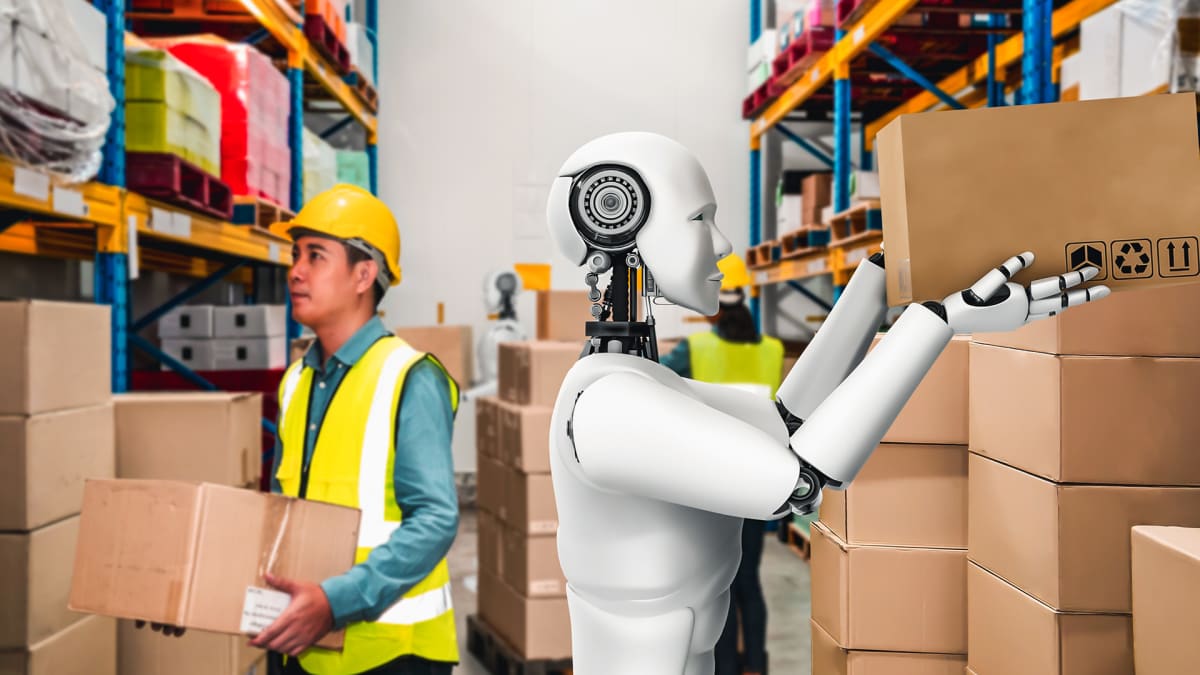
A chart tracking events over time offers a compelling glimpse at perceived threats from machines to humans in the job market.
A striking conclusion can be reached after looking at the data.
DON'T MISS: Want a New Job? You May Be Required to Know ChatGPT to Land It
Historically, the perceptions of the dangers to employment may be worse than they are in reality.
A graphic, posted on May 22 to Twitter by Brian Sozzi, Yahoo Finance executive editor, examines the median Group of Seven (G7) countries' unemployment percentage over more than two-and-a-half centuries.
It constructs a timeline and includes annotations for technological breakthroughs, contemporaneous stories about threats to jobs, and actual reasons for job losses during certain periods.
The G7 countries are Canada, France, Germany, Italy, Japan, the UK and U.S.
The graphic shows that the unemployment rate for those countries, since 1755, has generally remained a few percentage points above or below 5%. It reached 10% on only a few occasions, and more than 20% during the Great Depression.
The unemployment rate was more or less unfazed, over time, by major technological developments and stories indicating fear that machines would cost workers their jobs.
Sozzi likely published this graphic amid fears that a new contemporary technological innovation -- artificial intelligence -- poses a contemporary threat to jobs.
Google (GOOGL), Microsoft (MSFT) and Amazon (AMZN) are major companies with global reach that have begun to invest heavily in AI to improve their customers' experiences using their products.
One senior employment analyst, speaking with Yahoo Finance on May 5, thinks that AI will do more to replace tasks than jobs.
"What I’m hoping is -- and I have to be lucky on this -- is that it’s mostly replacing tasks. I’m actually going to be more productive in the future," Matt Darling, an employment policy fellow at the Niskanen Center said. "I don’t think the situation that people are really worried about, where we’re going to see permanently high unemployment rates because of AI, I don’t think that’s particularly likely. I think there’s going to be a lot more complementing human abilities and human ingenuity than we are going to be substituting it for."
On the other hand, Microsoft co-founder and philanthropist Bill Gates suggests the development of generative AI for people searching for information may have a huge impact on the technology business.
Speaking at AI Forward 2023, an event hosted by Goldman Sachs and SV Angle, Gates said that the company that will eventually win the AI race will do so by developing a personal digital assistant.
Gates said that people with access to this assistant will "never go to a search site again, you will never go to a productivity site, you'll never go to Amazon again."
This AI assistant -- which is not yet in open development -- will be capable of anticipating its human's needs and will perform the kinds of tasks that users don't have time for, such as reading.
Gates added that we're a long way away from seeing this digital super assistant in any kind of regular, mass use.
Get exclusive access to portfolio managers and their proven investing strategies with Real Money Pro. Get started now.







